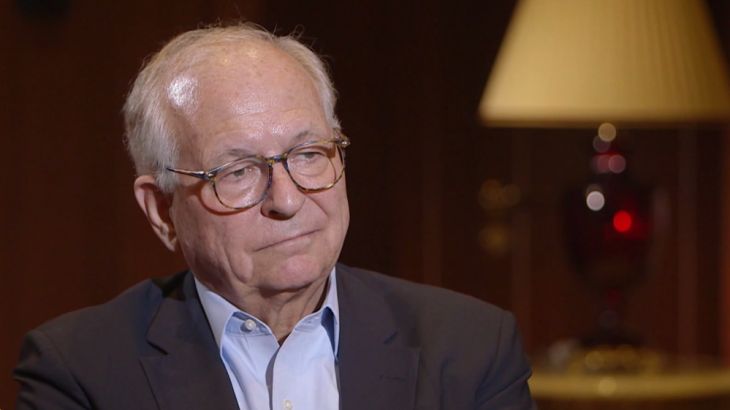
Wolfgang Ischinger: European army is necessary amid Russia threat
The chairman of the Munich Security Conference discusses NATO, Russia, Khashoggi and Europe’s role in a changing world.
In February, heads of state, top-ranking government and military officials and leaders of international organisations traditionally gather in Munich, Germany to debate global events and foreign policy issues.
“Munich is the place to go to hear bold policies announced, new ideas and approaches tested, old partnerships reaffirmed and new ones formed,” then-US vice president Joe Biden said in 2013.
Keep reading
list of 4 itemsNATO allies must do more as Ukraine runs out of ammunition: Stoltenberg
Nordic tensions on the rise amid Russian anger over NATO accessions
Flag of NATO’s 32nd member, Sweden, raised at alliance’s headquarters
With changing political dynamics among world leaders, the Munich Security Conference and similar meetings are now taking on extra importance.
“We are facing various intrusion attempts in our cyberspace and into our democratic life … We have to protect ourselves with respect to China, Russia and even the United States,” said French President Emmanuel Macron in November 2018.
Modern technology, the internet, social media have created and are creating a totally new fabric of communication and political relationships ... It's challenging for everybody ... I think the one who is fearing this the most is President Putin himself. He needs to be fearful of the virus of western democratic freedom entering Russian social life ... The virus of global communication, of fake news, of manipulation of news, it works in all directions. It works not only in the direction that maybe Russians are trying to manipulate opinion in the West.
But how bad are the prospects for managing global tensions and trouble spots? What risks and opportunities lie ahead in 2019? And what’s the state of NATO under President Donald Trump?
“I can’t think of a decade when the Transatlantic Alliance didn’t have a problem,” Wolfgang Ischinger, chairman of the Munich Security Conference, tells Al Jazeera.
“There is a clear commitment by the United States in the military field. The US has not deserted Europe, but … at the political level, some of the words spoken, some of the tweets tweeted [by President Trump] have created uncertainties in the minds of many Europeans. That’s bad,” says Ischinger.
But “since there is no alternative, we have to do our best in order to make sure it (the Alliance) will continue to exist and will continue to work”.
He states that due to the rise of European nationalism, “we are having a pretty tough fight about whether we in Western Europe can maintain a position … as a pillar of the liberal international order, which is under rather dramatic threat today”.
Ischinger believes that a more common European defence policy and the creation of a European army is inevitable. “It’s necessary … if there is a question mark about the reliability of our American partner (and) if we have a huge question mark about Russian intentions. Look what’s going on in the Russian neighbourhood. There are Russian troops in Ukraine; there are Russian troops in parts of what used to be Georgia; there are Russian troops still in Moldova. There is still the unresolved conflict in Nagorno-Karabakh. All around this zone surrounding Russia, we have military issues.”
As a result, Ischinger says, “We as Europeans need to hedge against the possibility that there might be yet another, a military issue coming our way. That is unfortunately the case.”
“All our welfare, all our social expenditures, all our accumulated wealth, all our employment is worth nothing if we don’t have security,” stresses Ischinger. “Just imagine another war. We are as we speak, having a war in the heart of Europe. Let’s call a spade a spade. What’s going on in Ukraine is a war. We have 10,000 people dead now since 2014. And please, don’t tell me that this is not something that we, Europeans, we in the Transatlantic community, need to worry about.”
“The European Union should be far more capable than it is today, to speak with one voice and to defend and represent the interests of 500 million people. That’s the European Union.”